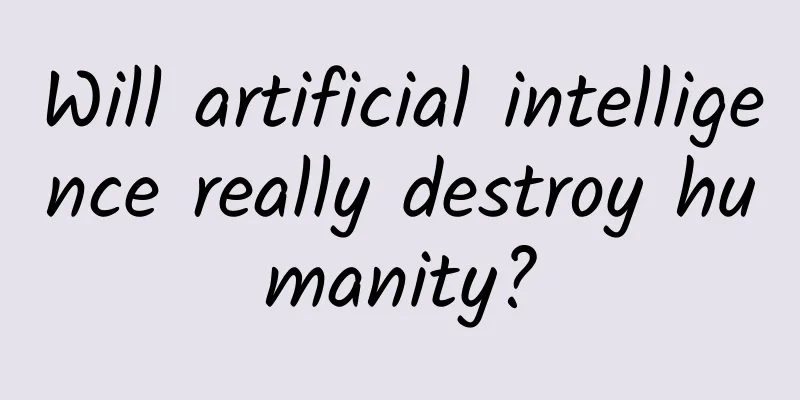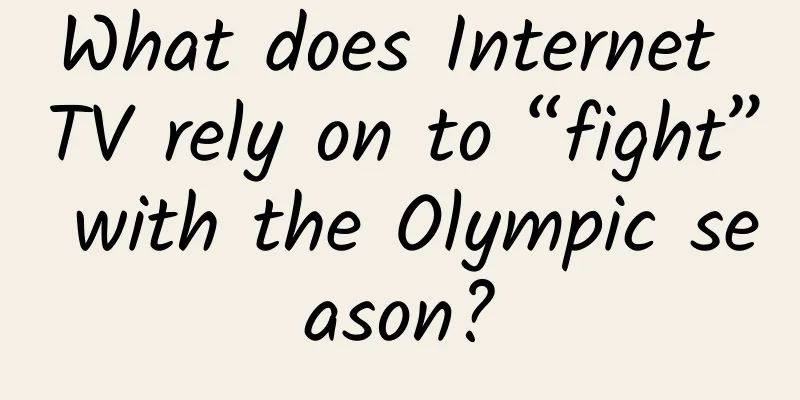Will artificial intelligence really destroy humanity?

|
What was originally a research project to maintain world peace suddenly turned into a disaster. Humanity was facing the risk of being destroyed by the intelligent robot "Ultron". Iron Man, Captain America, the Hulk, Thor and other superheroes once again joined forces to save the earth... Yes, this is the plot of "Avengers 2: Age of Ultron" which will be released in May this year. "Avengers 2" is defined as a superhero science fiction blockbuster. The plot is still very far away from reality, but "artificial intelligence destroys humanity" cannot help but touch our nerves. In 1956, the academic term "artificial intelligence" was first proposed, and "artificial intelligence" officially became an emerging discipline. But in the following decades, "artificial intelligence" left us with more impressions in laboratories and movies. But around 2013, technology giants represented by Google, Microsoft, and Facebook entered the field of artificial intelligence one after another, and manufacturers such as Foxconn planned to use robots to work, and "artificial intelligence" gradually entered our lives. Faced with an unprecedented "artificial intelligence wave" in the technology industry, Musk, Gates and other technology giants can no longer sit still. In August 2014, Musk posted a status on Twitter: "Bostrom's book "Superintelligence" is worth reading. We must be extremely cautious about artificial intelligence. Its potential may be more dangerous than nuclear bombs." Bill Gates also said at a recent event that machines will replace humans in various jobs. If we can handle it well, they should be able to play a positive role. However, decades later, artificial intelligence will develop to a level that is worrying enough. Hidden dangers of artificial intelligence: or impact on the existing social system In early February, hundreds of top scientists from the Future of Life Institute, which is dedicated to "reducing existing risks facing humanity," signed an open letter calling on the technology community to thoroughly examine the impact of the development of artificial intelligence on human society while promoting its development. The authors of the letter acknowledged that AI has achieved remarkable success in areas such as speech recognition, image classification, self-driving cars, machine translation and question-answering systems, and believed that these studies could help eliminate disease and poverty. However, they insisted that "AI systems must do what we want them to do" and that the scientific community should establish research goals that "help maximize the social benefits of AI." The open letter emphasizes that future artificial intelligence may affect society in areas such as computer security, economics, law and philosophy, but it is this ubiquitous potential that can trigger multi-faceted crises. For example, scientists believe that if certain parts of the economy become automated in the future, workers and their wages will be greatly affected, and artificial intelligence experts have to pay attention. Artificial intelligence should face the following questions: Do lethal automated weapons comply with humanitarian law? How to avoid privacy violations when artificial intelligence systems collect data from surveillance cameras, phone lines and emails? “When a machine makes a mistake, it can do so in more dramatic ways than a human error, with potentially more unpredictable outcomes,” a group of academics from the University of Oxford in the United Kingdom wrote in a blog post last year. “Simple algorithms are largely predictable, but in unusual circumstances they can make bizarre decisions.” Compared with these more realistic problems, the famous scientist Stephen Hawking thinks more long-term. In an interview with the BBC, Hawking said that if technology has similar capabilities to humans, "it will get out of control and redesign itself at an accelerated rate. What's more frightening is that due to biological limitations, humans cannot keep up with the development of technology." Hawking expressed concern about the future of mankind: "Humans cannot compete with machines due to the limitations of slow biological evolution and will be replaced. The development of full artificial intelligence may lead to the end of mankind." From the remarks of these scientists, we can see that the concerns of the technological and scientific communities about artificial intelligence mainly come from two aspects: on the one hand, the changes that artificial intelligence will bring to human work and lifestyles may affect the existing legal system, ethical standards, and profit distribution patterns, etc., and the speed at which humans make changes may not be able to keep up with the development of artificial intelligence, which will have an impact on the existing social system and cause chaos; on the other hand, artificial intelligence makes humans increasingly lack of thinking, while it itself may become smarter and smarter, thus threatening human survival. Did the prophecy come true? The “doomsday theory” is a bit alarmist Google Chairman Schmidt was the first to refute the remarks made by Musk, Gates, Hawking and others. Schmidt's identity is very special. As the chairman of Google, he has personally participated in the development of many of the world's most complex artificial intelligence systems, from self-driving cars to Google's predictive search engines. Google even launched its own internal robotics laboratory last year. Schmidt believes that all fears that machines will take away human jobs and take over the world are unfounded, and he hopes that people can realize that robots will become our friends. Schmidt said: "It's normal to worry about artificial intelligence. But looking back at history, you will find that these are absolutely wrong. We just hope that more mechanization can make us wear better clothes, and historical experience has shown that most of the past economic booms were caused by the adoption of new technologies." IBM Global Vice President Wang Yang also told Tencent Technology that when technology achieves rapid progress, it always makes people feel scared, but what is really important is the people who master the technology. "There are always evil people who use new technologies to make trouble." The development of technology is unstoppable. For example, in Hollywood blockbusters, we can often see evil forces abusing high-tech technologies, but humans must master these as soon as possible to resist the invasion of unjust people. In short, there will inevitably be debates about the development of new technologies, but the progress of science will always bring a better future for mankind. " Tony Cohen is a professor of automated reasoning at the University of Leeds in the UK. He said that full artificial intelligence "is still a long way off, and given the current rate of development, I think it will still take nearly a hundred years." Cohen believes that despite great progress in recognition programs and speech recognition, robots perform poorly in open and chaotic environments, and the biggest obstacle that artificial intelligence ultimately faces is that "machines are machines after all." From the perspective of most people, the statement that "artificial intelligence will destroy humanity" seems a bit exaggerated. Existing science and technology can only allow machines to do some relatively basic things, such as some fixed actions on the production line, etc. Even the intelligent system on driverless cars is not perfect, let alone artificial intelligence with thinking and emotions, which can threaten human survival. However, one thing cannot be ignored. With the advancement of science and technology, automated artificial intelligence will appear more and more in our work and life, and it is very likely that machines will replace human work in the near future. Self-driving cars are the closest kind of artificial intelligence to us, but in addition to technical factors, they also face many challenges. For example, if a Google self-driving car gets into an accident and causes serious consequences, who is responsible for the accident, the car owner, Google, or the algorithms, sensors, and all control systems that drive the car? Unfortunately, the existing legal system has not kept up with the pace of development of modern society, enterprises, or robots, and cannot give a clear answer. We should also think about what we should do when robots make a large number of workers unemployed? When robots cause accidents due to misoperation, how can existing laws clarify responsibilities? When hackers use artificial intelligence to commit crimes, how can we prevent them? These are all issues we need to face now. As a winner of Toutiao's Qingyun Plan and Baijiahao's Bai+ Plan, the 2019 Baidu Digital Author of the Year, the Baijiahao's Most Popular Author in the Technology Field, the 2019 Sogou Technology and Culture Author, and the 2021 Baijiahao Quarterly Influential Creator, he has won many awards, including the 2013 Sohu Best Industry Media Person, the 2015 China New Media Entrepreneurship Competition Beijing Third Place, the 2015 Guangmang Experience Award, the 2015 China New Media Entrepreneurship Competition Finals Third Place, and the 2018 Baidu Dynamic Annual Powerful Celebrity. |
<<: Samsung's Tizen can't shake iOS and Android with its old tricks
Recommend
213,900-329,900! The first choice for elite families, Haobo HT high-gloss launch
As elite families continue to grow and develop, t...
The two major directions of planning are clear, and the dream of becoming a powerful automobile country has a ten-year plan
After more than a year, a major policy that draws...
Analysis of the user growth strategy of "Zhong Xue Gao"
Why can fast-moving consumer goods like Zhong Xue...
Case Analysis: How to impact the Weibo topic list with 0 budget and link up 30 apps?
If you are working on new media in an APP, then c...
3 formulas for B station to become popular with over 1 million views!
A cool designer, a low-key female writer, and a r...
Can the Centennial Orchid live 100 years? Wrong, it can actually live 2,000 years!
In 1859, Austrian botanist Frederich Welwitsch di...
How do overseas bloggers calculate promotion costs? Overseas advertising rules!
Table of contents 1. How do overseas bloggers cal...
Wuhan high-end tea tasting club takeaway tea sn most reliable contact information
Wuhan high-end tea tasting consultation 132-7243-...
The sales target of Xiangjie S9 this year is 60,000 units. Is this the only battle that will determine the success of BAIC Motor, which suffered a loss of 25 billion yuan?
"This car competes with the Mercedes-Benz S-...
Weibo traffic | What is Weibo real-time account? What is it used for and how to raise it?
Why did you think of sharing this today? Because ...
New broadband players may disrupt the pricing structure
The broadband market has become less peaceful sin...
DJI dominates the consumer drone market, but what about the professional field?
The unsexy industrial drone market has become ext...
Async/Await in Swift — Detailed Code Examples
Introduction async-await is part of the structure...
Vomiting blood sorting | 62 self-media platforms
With the rapid development of social media in rec...









